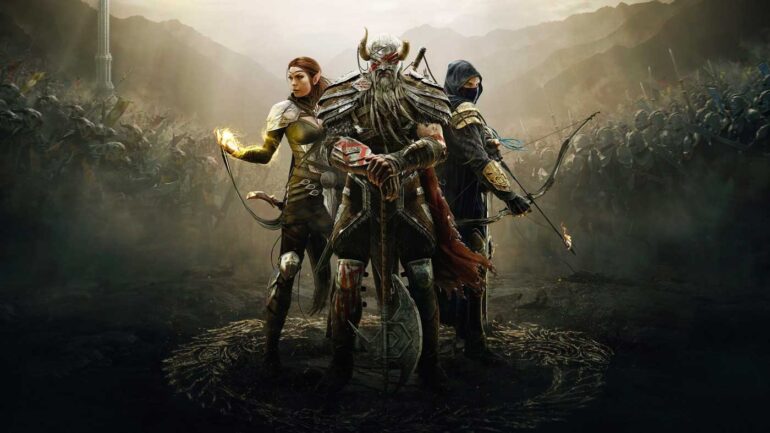Never underestimate the power of a good lunch break. Despite the jet lag that was surely buffeting him like the cold Melbourne winds hit all of us at PAX Australia earlier this month, ZeniMax Online Studio’s Rich Lambert was surprisingly chipper as I sat down with him in a hotel lobby. The Creative Director of The Elder Scrolls Online, the now ten-year running MMO based on the already massively popular fantasy IP, Lambert was the picture of chilled when we found a quiet corner to talk all things ESO. His secret, he tells me, is that he’d just come back from a good lunch and felt alive again. Kind of a key thing for an interview to go well.
Over some laughs and knowing looks we unpacked how it has been to be so deeply involved with such a colossal game for over a decade now, what challenges arose and how the team met them, and perhaps most importantly, how nobody has to do any of this alone.
So, ten years of Elder Scrolls Online. How does it feel?
It’s pretty wild! You know, I’ve actually been working on Elder Scrolls games since 2005, so Oblivion was the first game and I moved over to ESO in 2007 when we started the studio. So, it’s rewarding to see ESO go from kind of the paper concept to launch, and then to turning it around from launch into what it is today.
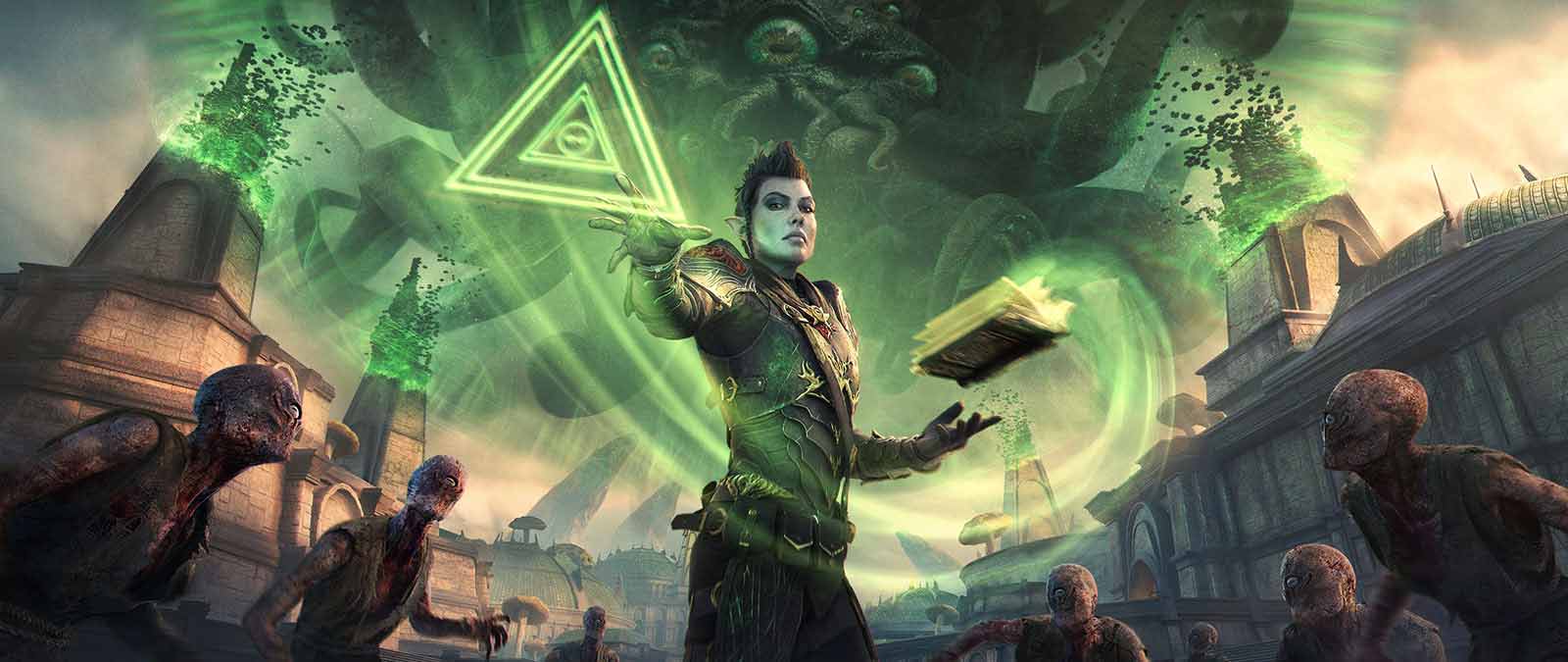
“Turning it around from launch” implies a fair bit, what went into that?
Launch wasn’t stellar for us. We were trying to find that happy medium between MMO and an Elder Scrolls game, and we didn’t hit it. We just didn’t hit it. The community let us know that and there were core elements they loved and a lot of elements they didn’t love, and so we had to really have a hard think about what it was we wanted to do, and we chose Elder Scrolls. It’s an Elder Scrolls game first and foremost, so every decision after that point was like, does this make it feel more Elder Scrolls? If it does, we’ll do it. If it doesn’t, we won’t do it. And we’ve kind of got what we’ve got today.
In those initial planning stages was there ever potential for the team to have done a Fallout MMO instead? It’s a concept that has existed in the ether for a while now after all.
It was always Elder Scrolls from the beginning. Like, I bugged Todd (Howard) a lot about making Elder Scrolls an online game. And when I first actually met Matt Fiber, who’s the president and game director, he was actually in Todd’s office. And Todd was just like, Matt, this is Rich. All he talks about is making online games. Rich, this is Matt. Matt’s going to start up ZeniMax Online Studio. You two should talk, please. And we talked for like three or four hours that day, and Matt hired me.
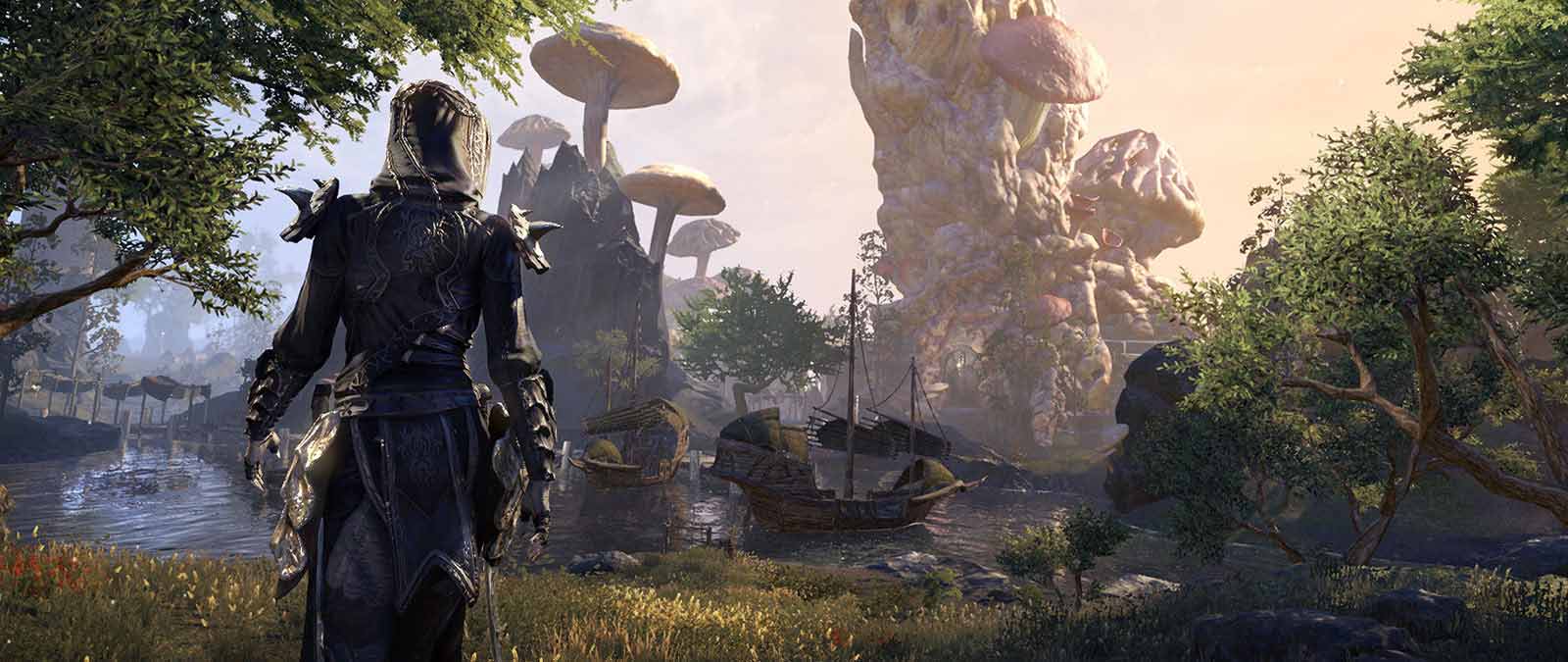
Obviously, it worked out okay given the huge success of ESO but a decade is a long time, especially on the internet. How has the changing digital landscape impacted the game and the team?
It’s interesting, especially with COVID there were a ton of people that jumped in and started playing more so than before and because we chose kind of Elder Scrolls first, massively multiplayer second, we made a lot of decisions to focus more on what you can play by yourself. It’s more focused on your personal journey through the world and whatnot. But there’s also a lot of elements in there that make it easy to play with other people. And I think it’s definitely the magic of online games is those social bonds and social ties to other players. If you can establish those, you just play and you play forever. You’re not necessarily logging in to play the game, you’re logging in to meet with your friends and play with your friends. So, trying to find that balance between those two has been a learning experience for sure.
I think that kind of “forever play” idea is interesting in the context of Bethesda’s fandom, a typically very passionate group of people. Does that pressure ever get to you? And do you think having a game that’s this connected to its fans necessitates more of a community driven development or ideas process?
Like you said, people are really passionate about Elder Scrolls. It’s almost thirty years old at this point. And I think that the thing that separates Elder Scrolls games from other games is this kind of unreliable narrator. Stories are told from multiple perspectives and so a lot of the lore and what’s going on in the world is open to interpretation. So, there’s a lot of debate within the community about that and it’s definitely something that we pay attention to. We spend a lot of time on the forums and Reddit and other social media places just to kind of see what people are saying, what their thoughts are. We take a lot of in game feedback as well and try to use that to help guide and shape where we’re going to go next and the types of stories we tell and features we work on. So, it’s pretty community driven, I would say.
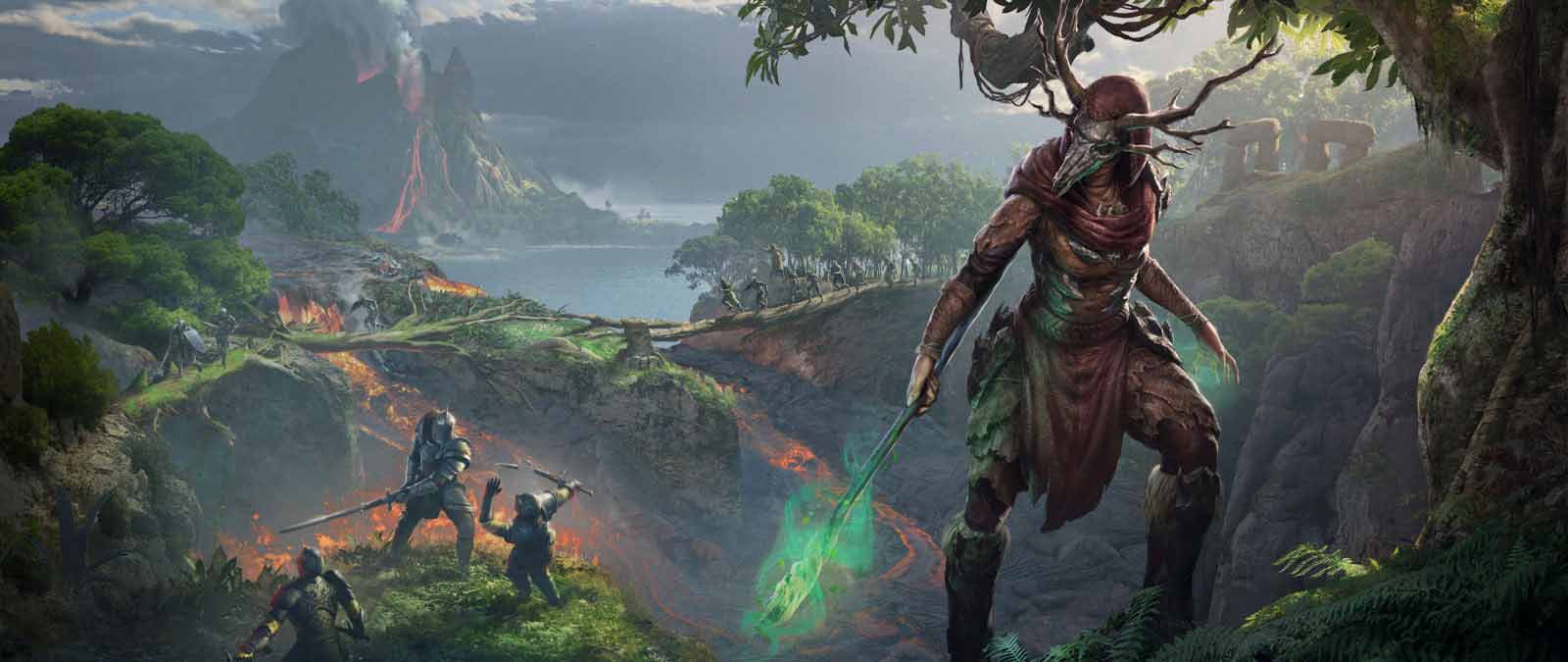
I can’t begin to imagine how important the overarching lore of the series must be internally; I imagine there’s a Bible somewhere. But does writing these stories for a persistent online world present a different challenge than a more traditional single-player world?
It does, and we learned a lot of what not to do from launch. One of the core pillars of Elder Scrolls is you’re always the central figure to the storyline. You’re always the hero. So, we tried to replicate that in ESO. We did a lot of things like you go into an area and it’s under attack, and then you can choose to save it or not. If you choose to save it, then you get this one kind of the world changes and if you don’t, then the world doesn’t change. That was cool! And that works really well in a single player game! But it doesn’t work in a multiplayer game because you’re separating players.
So it sounds like a duh moment when you think about it now, but at the time we were more focused on those stories and really making the player feel powerful and the central core pillar in the story. And we forgot about the multiplayer side of things. So, we spent six months after launch, seven months after launch, fixing all of those player separation issues. And what we learned in there is you can give players interesting choices, but you should try as hard as you can to never separate them. Because I could make a decision, you make a different decision, and then you can never play together when you’re in that area. And that’s bad.
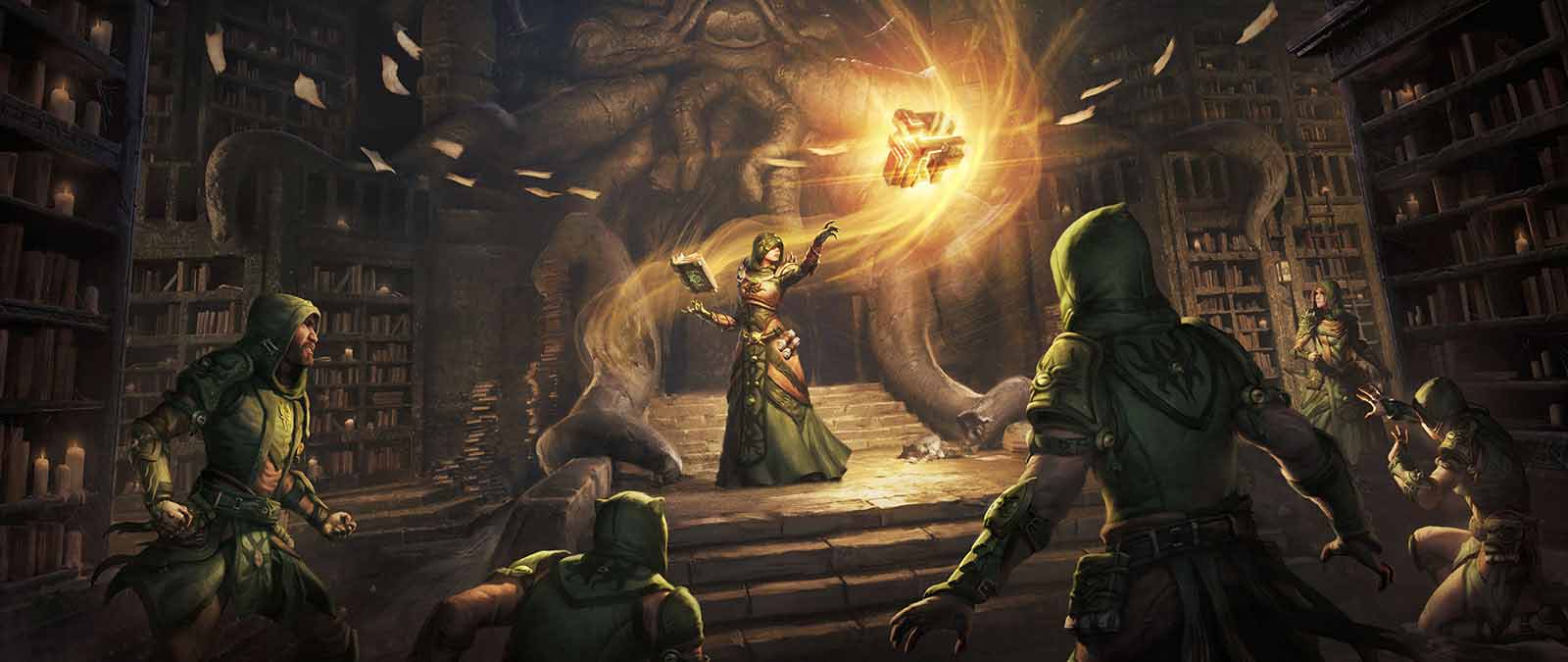
Especially given how many new players ESO must be picking up the game now that it’s on Xbox Game Pass, right? Does that influx change how you think about things like onboarding and player count and retention?
What it did shed a light on is kind of that new player experience is probably not as good as it should be in terms of on ramping into new systems, surfacing all the different types of content and systems we have in the game. We don’t necessarily do that as well as we should. So, it’s added another thing to our list of things to think about, and it’s probably going to be the next kind of big thing we tackle, is that new player onboarding and also returning player onboarding. If you’re gone for six-eight-twelve months and come back to the game, there’s four major updates you’ve missed. So, the game has changed a lot and finding ways to surface that to those kinds of players is important.
Same thing with when we just recently moved on to the Epic Game Store. We saw a huge influx of players and so obviously we cohort that group and we track that group and see how they kind of work through things. So, we’re absolutely aware of that stuff when we track where players churn out, where they get stuck, that kind of stuff.
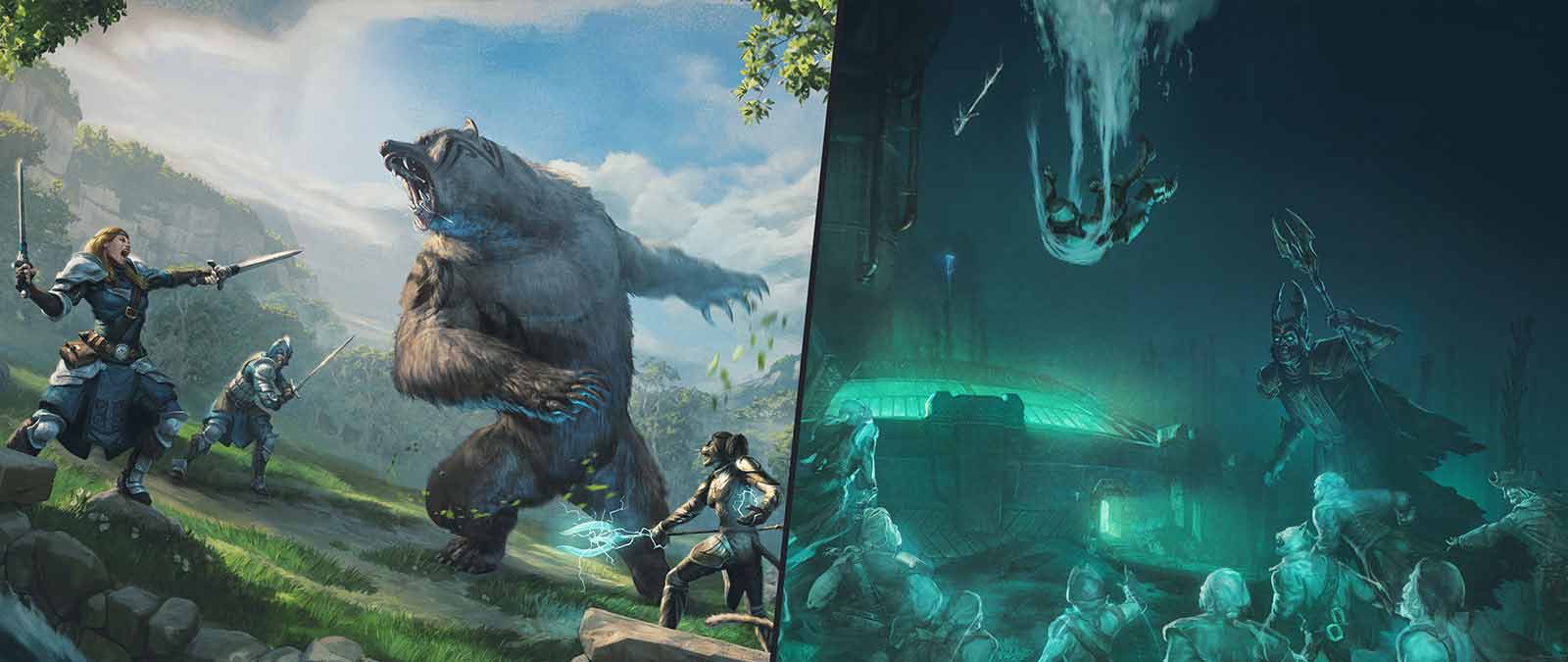
With ten years at your back, what does the future look like? What has you most excited and most nervous? Or is that the same thing at this point?
It’s kind of one and the same. I’ve always said that as long as players want to continue to play the game, we’re going to keep updating it, and adding to it and making it better. It takes a long time to build zones, it takes a long time to build that kind of hand-built content. A Chapter takes eighteen months to build.
So we launched Necrom in June but we’ve already been working on next year’s Chapter for a while. At that point we’re working on things for fourth quarter next year and I’m working on stories with the team for 2025 and 2026. So, it’s kind of this never-ending cycle of like, here’s all the stuff we have to do and we try to plan as much as we can as early as we can so that the teams have some wiggle room to kind of pivot on things. If we get some player feedback that says we hate this, okay, how can we change and adjust? It’s trying to predict player behaviour, which is really hard, and trying to predict what they’re going to like, what they don’t like, and then trying to iterate on that as quick as we can.
Hearing you talk about plans into 2026 puts into perspective just how big this game has been and how much it will continue to be so. It must be a lot?
I mean, I could talk about ESO forever. It’s the thing I’ve been working on for almost seventeen years at this point. It’s a huge part of my life. It’s a huge part of the team’s life. I’m super proud of kind of where we started and then kind of where we…I don’t want to say “ended” because we’re not done yet, but where we are at now, where the game is very different than what we launched and that only happened because of the team and the hard work. It is amazing to be able to be a part of that team and to represent that team. Like, I don’t do it all by myself as right. I have a really stellar team I get to work with every day, so it’s pretty cool to be a part of that and be a part of the community.
Find out more about The Elder Scrolls Online and get started on your own journey right here.


